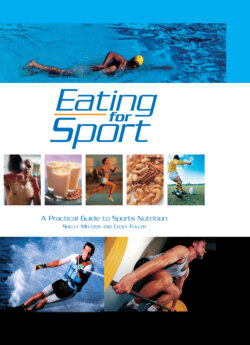Читать книгу Eating for Sport - Shelly Meltzer - Страница 30
На сайте Литреса книга снята с продажи.
MICRONUTRIENTS
ОглавлениеProvided the child meets the higher energy requirements and consumes a varied diet with nutrient-dense food choices, it is likely that they will meet their vitamin and mineral requirements and will thus not require vitamin and mineral supplementation.
Minerals that are of great concern are iron, calcium and zinc. Iron is essential for haemoglobin formation and a deficiency can follow periods of rapid growth, which negatively impacts on sporting performance. In boys the gain in muscle mass is accompanied by an increase in blood volume and in girls iron is lost monthly due to menstruation. Iron-deficiency anaemia is a common problem in adolescent girls who are restricting their food intake because they think that they are fat. Calcium requirements for males and females increase substantially during adolescence to meet the demands of bone growth and to achieve a good bone mass. Zinc is also known to be essential for growth, but the retention of zinc increases during growth spurts, leading to more efficient use of dietary sources (see table p24).
A child’s diet should therefore be checked for these minerals, especially during periods of rapid growth (see under Questions and Answers pp37, 38 and also p82).
